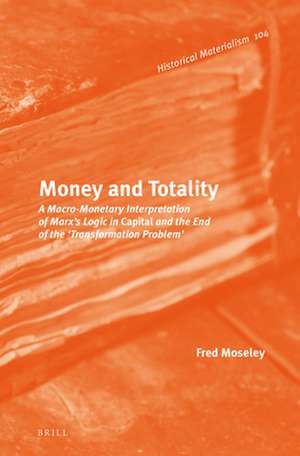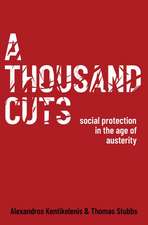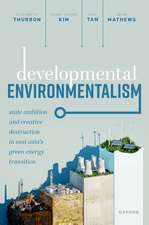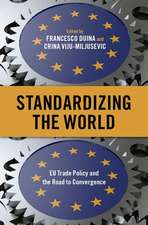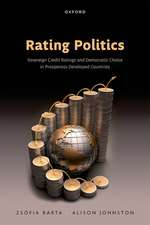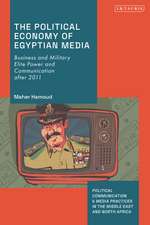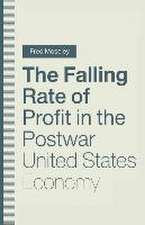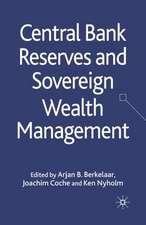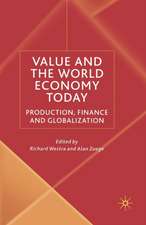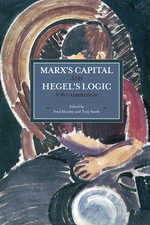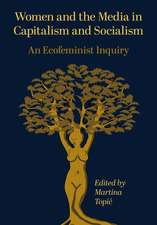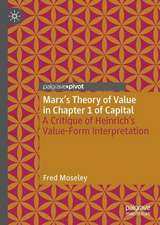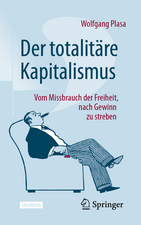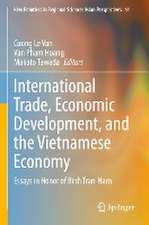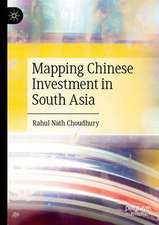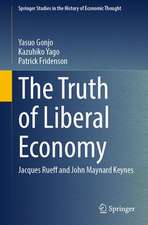Money and Totality: A Macro-Monetary Interpretation of Marx's Logic in <i>Capital</i> and the End of the 'Transformation Problem': Historical Materialism Book Series, cartea 104
Autor Fred Moseleyen Limba Engleză Hardback – 30 sep 2015
Din seria Historical Materialism Book Series
-
 Preț: 215.03 lei
Preț: 215.03 lei - 18%
 Preț: 966.97 lei
Preț: 966.97 lei - 18%
 Preț: 990.17 lei
Preț: 990.17 lei - 18%
 Preț: 1092.16 lei
Preț: 1092.16 lei - 18%
 Preț: 1229.68 lei
Preț: 1229.68 lei - 18%
 Preț: 1241.69 lei
Preț: 1241.69 lei - 18%
 Preț: 1190.02 lei
Preț: 1190.02 lei - 18%
 Preț: 893.05 lei
Preț: 893.05 lei - 18%
 Preț: 1401.90 lei
Preț: 1401.90 lei - 18%
 Preț: 928.59 lei
Preț: 928.59 lei - 18%
 Preț: 692.45 lei
Preț: 692.45 lei -
 Preț: 268.72 lei
Preț: 268.72 lei - 18%
 Preț: 674.65 lei
Preț: 674.65 lei - 18%
 Preț: 606.87 lei
Preț: 606.87 lei - 18%
 Preț: 584.78 lei
Preț: 584.78 lei - 18%
 Preț: 711.86 lei
Preț: 711.86 lei - 18%
 Preț: 653.05 lei
Preț: 653.05 lei - 18%
 Preț: 531.91 lei
Preț: 531.91 lei - 18%
 Preț: 618.24 lei
Preț: 618.24 lei - 18%
 Preț: 647.75 lei
Preț: 647.75 lei - 18%
 Preț: 710.68 lei
Preț: 710.68 lei - 18%
 Preț: 922.23 lei
Preț: 922.23 lei - 18%
 Preț: 810.75 lei
Preț: 810.75 lei - 18%
 Preț: 996.78 lei
Preț: 996.78 lei - 18%
 Preț: 815.21 lei
Preț: 815.21 lei - 18%
 Preț: 1506.58 lei
Preț: 1506.58 lei - 18%
 Preț: 852.61 lei
Preț: 852.61 lei - 18%
 Preț: 645.66 lei
Preț: 645.66 lei - 18%
 Preț: 781.47 lei
Preț: 781.47 lei - 18%
 Preț: 615.22 lei
Preț: 615.22 lei - 18%
 Preț: 1155.47 lei
Preț: 1155.47 lei - 18%
 Preț: 1062.98 lei
Preț: 1062.98 lei - 18%
 Preț: 867.08 lei
Preț: 867.08 lei - 48%
 Preț: 1092.64 lei
Preț: 1092.64 lei - 36%
 Preț: 765.86 lei
Preț: 765.86 lei - 18%
 Preț: 648.18 lei
Preț: 648.18 lei - 18%
 Preț: 759.36 lei
Preț: 759.36 lei - 18%
 Preț: 716.43 lei
Preț: 716.43 lei - 18%
 Preț: 671.14 lei
Preț: 671.14 lei - 18%
 Preț: 671.55 lei
Preț: 671.55 lei - 18%
 Preț: 760.91 lei
Preț: 760.91 lei - 18%
 Preț: 1012.77 lei
Preț: 1012.77 lei - 18%
 Preț: 817.24 lei
Preț: 817.24 lei - 18%
 Preț: 656.87 lei
Preț: 656.87 lei - 18%
 Preț: 1298.18 lei
Preț: 1298.18 lei - 18%
 Preț: 791.86 lei
Preț: 791.86 lei - 18%
 Preț: 971.66 lei
Preț: 971.66 lei - 18%
 Preț: 635.13 lei
Preț: 635.13 lei
Preț: 783.81 lei
Preț vechi: 955.87 lei
-18% Nou
Puncte Express: 1176
Preț estimativ în valută:
149.98€ • 157.04$ • 124.40£
149.98€ • 157.04$ • 124.40£
Carte indisponibilă temporar
Doresc să fiu notificat când acest titlu va fi disponibil:
Se trimite...
Preluare comenzi: 021 569.72.76
Specificații
ISBN-13: 9789004216556
ISBN-10: 9004216553
Pagini: 433
Dimensiuni: 155 x 235 x 28 mm
Greutate: 0.77 kg
Editura: Brill
Colecția Brill
Seria Historical Materialism Book Series
ISBN-10: 9004216553
Pagini: 433
Dimensiuni: 155 x 235 x 28 mm
Greutate: 0.77 kg
Editura: Brill
Colecția Brill
Seria Historical Materialism Book Series
Cuprins
Preface
Bibliographical Note
Part I: A Macro-Monetary Interpretation of Marx’s Logical Method
1. Introduction: A ‘macro-monetary’ interpretation of Marx’s theory
2. Algebraic summary: A ‘macro-monetary’ interpretation of Marx’s theory
3. Marx’s Theory of the Production and Distribution of Surplus-Value: The Prior Determination of the Total Surplus-Value
4. The Circuit of Money Capital: M Presupposed
5. Money Has No Price:Marx’s Theory of Money and the Transformation Problem
Part II: Other Interpretations of the Transformation Problem
6. Standard Interpretations of Marx’s theory
7. Shaikh’s Iterative Interpretation
8. The New Interpretation (Foley, Duménil, Mohun)
9. Temporal Single System Interpretation (Kliman and McGlone)
10. The Rethinking Marxism Interpretation (Wolff, Roberts, and Callari)
11. The Organic Composition of Capital Interpretation (Fine, Saad-Filho)
12. Replies to Criticisms of my Macro-Monetary Interpretation (Laibman, Bellofiore)
Part III: Conclusion
Conclusion
Index
Bibliographical Note
Part I: A Macro-Monetary Interpretation of Marx’s Logical Method
1. Introduction: A ‘macro-monetary’ interpretation of Marx’s theory
2. Algebraic summary: A ‘macro-monetary’ interpretation of Marx’s theory
3. Marx’s Theory of the Production and Distribution of Surplus-Value: The Prior Determination of the Total Surplus-Value
4. The Circuit of Money Capital: M Presupposed
5. Money Has No Price:Marx’s Theory of Money and the Transformation Problem
Part II: Other Interpretations of the Transformation Problem
6. Standard Interpretations of Marx’s theory
7. Shaikh’s Iterative Interpretation
8. The New Interpretation (Foley, Duménil, Mohun)
9. Temporal Single System Interpretation (Kliman and McGlone)
10. The Rethinking Marxism Interpretation (Wolff, Roberts, and Callari)
11. The Organic Composition of Capital Interpretation (Fine, Saad-Filho)
12. Replies to Criticisms of my Macro-Monetary Interpretation (Laibman, Bellofiore)
Part III: Conclusion
Conclusion
Index
Recenzii
"Money and Totality, is probably the best book on Marxist economic theory this year, and for this century so far.”
Michael Roberts, author of The Long Depression
"After discussions of the ‘transformation problem’ for over 100 years no new approach seemed to be possible. However Fred Moseley succeeds to present something new. Combining methodological considerations, a macroeconomic, and a monetary approach, Moseley is able to find the ‘solution’ to the transformation problem already in Volume I of ‘Capital’ – which is really surprising. This book is important not only for the transformation problem but also for introducing a new macro-monetary interpretation of ‘Capital’ which is extremely useful for a number of other fields of research."
Michael Heinrich, political scientist and mathematician based in Berlin, member of the editorial board of PROKLA, Journal of Critical Social Science
"This is a comprehensive survey and summary of Fred Moseley's research over more than thirty years into Marx's method of analysis of values and prices in a capitalist economy. He provides a very clear explanation of his thesis that Marx's approach has been generally completely misunderstood, and that as a consequence the usual critique of inconsistency is wrong. From this perspective, he also engages with the many alternative approaches that have been advocated, providing a thoughtful methodological critique of the various positions in the literature. Both beginners and specialists will find this book of great interest as it vigorously challenges conventional wisdom both in the history of economic thought and among Marx scholars."
Simon Mohun, Queen Mary University of London
"From the nineteen century until today, Marx’s critics have rejected his theory on the grounds that the Volume 3 account of prices of production contradicts the analysis of labor time values in Volume 1. Marx’s defenders have responded by attempting to “transform” labor values into prices of production in ways that avoid this criticism and enable some of Marx’s key claims to still be affirmed. In this brilliant book Moseley provides extensive textual evidence from all the drafts of Capital that neither critics nor advocates have adequately understood Marx’s methodological framework. Marx’s project was not to transform labor values into prices of production; Capital is a monetary theory from beginning to end. The same money quantities are first comprehended on an aggregate level, and then on a more concrete level where differences among sectors are taken into account. Moseley provides elegant algebraic proofs that all of Marx’s key claims can be established within this framework. This book may well overcome the obsession with the “transformation problem” once and for all, moving debates about Marx’s theory onto more fruitful paths. It is surely one of the most important contributions to Marxian scholarship published in our time."
Tony Smith, Iowa State University
Michael Roberts, author of The Long Depression
"After discussions of the ‘transformation problem’ for over 100 years no new approach seemed to be possible. However Fred Moseley succeeds to present something new. Combining methodological considerations, a macroeconomic, and a monetary approach, Moseley is able to find the ‘solution’ to the transformation problem already in Volume I of ‘Capital’ – which is really surprising. This book is important not only for the transformation problem but also for introducing a new macro-monetary interpretation of ‘Capital’ which is extremely useful for a number of other fields of research."
Michael Heinrich, political scientist and mathematician based in Berlin, member of the editorial board of PROKLA, Journal of Critical Social Science
"This is a comprehensive survey and summary of Fred Moseley's research over more than thirty years into Marx's method of analysis of values and prices in a capitalist economy. He provides a very clear explanation of his thesis that Marx's approach has been generally completely misunderstood, and that as a consequence the usual critique of inconsistency is wrong. From this perspective, he also engages with the many alternative approaches that have been advocated, providing a thoughtful methodological critique of the various positions in the literature. Both beginners and specialists will find this book of great interest as it vigorously challenges conventional wisdom both in the history of economic thought and among Marx scholars."
Simon Mohun, Queen Mary University of London
"From the nineteen century until today, Marx’s critics have rejected his theory on the grounds that the Volume 3 account of prices of production contradicts the analysis of labor time values in Volume 1. Marx’s defenders have responded by attempting to “transform” labor values into prices of production in ways that avoid this criticism and enable some of Marx’s key claims to still be affirmed. In this brilliant book Moseley provides extensive textual evidence from all the drafts of Capital that neither critics nor advocates have adequately understood Marx’s methodological framework. Marx’s project was not to transform labor values into prices of production; Capital is a monetary theory from beginning to end. The same money quantities are first comprehended on an aggregate level, and then on a more concrete level where differences among sectors are taken into account. Moseley provides elegant algebraic proofs that all of Marx’s key claims can be established within this framework. This book may well overcome the obsession with the “transformation problem” once and for all, moving debates about Marx’s theory onto more fruitful paths. It is surely one of the most important contributions to Marxian scholarship published in our time."
Tony Smith, Iowa State University
Notă biografică
Fred Moseley is Professor of Economics at Mount Holyoke College and is the author and editor of numerous books and articles on Marx’s theory, especially the logical method employed by Marx in Capital and the theory of the distribution of surplus-value in Volume III of Capital.
